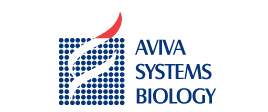

The SK1 antibody is specific for the 32-34 kDa alpha chain of human CD8, known as CD8a or CD8 alpha. CD8a can form a homodimer (CD8 alpha-alpha), but is more commonly expressed as a heterodimer with a second chain known as CD8b or CD8 beta. CD8 acts as a co-receptor for antigen recognition and subsequent T cell activation that is initiated upon binding of the T cell receptor (TCR) to antigen-bearing MHC Class I molecules. The cytoplasmic domains of CD8 provide binding sites for the tyrosine kinase lck, facilitating intracellular signaling events that lead to T cell activation, development, and cytotoxic effector functions. CD8+ cytotoxic T cells (CTLs) play an important role in inducing cell death of tumor cells, as well as cells infected by virus, bacteria or parasites.
The SK1 antibody is widely used as a phenotypic marker for CD8 on cytotoxic T cells, thymocytes, as well as on certain cell types that do not also express the TCR, including some NK cells and lymphoid dendritic cells. It is cross-reactive with CD8 in several non-human species, including Baboon, Chimpanzee, Cynomolgus and Rhesus. If used together with an alternative Anti-Human CD8a clone, RPA-T8, the SK1 antibody will not block binding of RPA-T8 to CD8a.
Campanelli R, Palermo B, Garbelli S, Mantovani S, Lucchi P, Necker A, Lantelme E and Giachino C. 2002. Int Immunol. 14(1): 39-44. (Flow Cytometry)
Walter S, Herrgen L, Schoor O, Jung G, Wernet D, Buhring H-J, Rammensee H-G and Stevanovic S. 2003. J. Immunol. 171(10): 4974-4978. (Flow Cytometry)
Cervasi B, Paiardinin M, Serafini S, Fraternale A, Menotta M, Engram J, Lawson B, Staprans I, Piedimonte G, Perno CF, Silvestri G and Magnani M. 2006. J. Virol. 80(21): 10335-10345. (Flow Cytometry - Sooty Mangabeys)
Verstrepen BE, Verschoor EJ, Fagrouch ZC, Mooij P, de Groot NG, Bontrop RE, Bogers WM, Heeney JL and Koopman G. 2014. PLoS ONE 9(4): e95103. doi:10.1371/journal.pone.0095103. (Flow Cytometry - Chimpanzee)
Permar SR, Klumpp SA, Mansfield KG, Kim W-K, Gorgone DA, Lifton MA, Williams KC, Schmitz JE, Reimann KA, Axthelm MK, Polack FP, Griffin DE and Letvin NL. 2003. J. Virol. 77(7): 4396-4400. (Flow Cytometry - Rhesus)
Ahmed AFK, Ohtani H, Nio M, Fuanki N, Shimaoka S, Nagura H and Ohi R. 2001. J. Pathol. 193(3): 383-389. (Immunohistochemistry)
Bukowska-Straková K, Baran J, Gawlicka M and Kowalczyk, D. 2006. Folia Histochemica et Cytobiologica 44(3): 179-183.
avivasysbio英杰华系统生物学
关键目标家族和独特内容的抗体
我们丰富的抗体目录
Aviva Systems Biology为我们的客户提供了大量用于研究和诊断应用的高质量抗体。英杰华目前提供针对7,000多种不同蛋白质靶标的抗体,这是因为我们的高通量抗体生产每月会释放200多种新抗体。Aviva的重点是针对转录,表观遗传学和细胞信号传导领域关键靶标的抗体。Aviva的抗体库包含针对许多目标的独特抗体含量,这些目标是其他地方无法买到的。我们将重点放在面向家庭的抗体生产上,从而产生了针对大多数关键蛋白质家族成员的抗体,例如转录因子,转录调节剂,RNA结合蛋白,离子通道和细胞膜靶蛋白。
不断努力研发。
英杰华(Aviva)还拥有大量额外的17,000种抗体,这些抗体目前正在使用6个组织和6个细胞系进行全面的蛋白质印迹表征和验证。随着英杰华高通量处理团队对这些候选新产品的描述,我们预计明年将发布数千种新抗体产品。
容纳客户反馈。
英杰华欢迎客户提出建议,并鼓励研究人员通过info@avivasysbio.com与我们联系,以寻求满足其研究要求的特定抗体。如果我们有满足您需求的抗体,但尚未发布,我们将齐心协力使您的目标在队列中前进,并在发布新抗体时提醒您有可用的新抗体。













